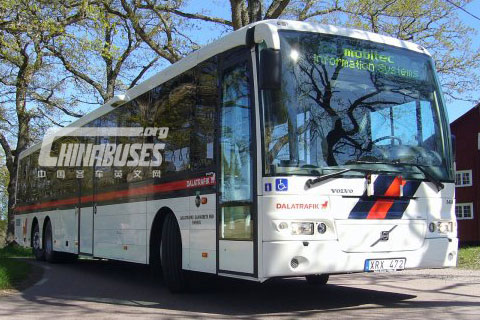Volvo has received its first order for buses that operate on both biogas and diesel. Using diesel technology increases environmental efficiency compared with current gas-operated buses. Biogas is a renewable fuel that contributes to reducing greenhouse-gas emissions. Many cities and regions are investing in expanding the production of biogas for heating and vehicle fuel. Many gas-operated buses currently use biogas as fuel.

Volvo 8500 LE Sweden
However, current gas-operated buses have some disadvantages. It is a complicated technology that requires careful maintenance. Furthermore, current gas-operated engines are based on the same technology as gasoline engines, the Otto cycle, which is not as energy-efficient as diesel-engine technology.
“A diesel engine is 30-40% more efficient than current gas-operated engines,” says Edward Jobson, Environment Director at Volvo Buses. “In a time when we must reduce society’s total energy consumption, higher utilization of the diesel-engine technology is an important development.”
Consequently, AB Volvo is participating in a demonstration project for methane/diesel technology using buses for regional traffic and trucks. Current diesel engines will be used, but up to 70% of the fuel is biogas or natural gas. The Swedish Energy Agency is contributing nearly 2.5 million Euro to the project.
With respect to the buses, a common diesel bus will be used, on which gas tanks will be mounted on the roof and equipment that injects the gas into the engine to create an optimal mixture of air and fuel.
The diesel engine functions as usual, but only a small amount of common diesel or bio-diesel will be continuously injected into the cylinders. The diesel’s task is to function as a type of ignition for the gas, which is the primary fuel. At the same time, the operators will feel safe knowing that the engine can operate as usual on only diesel if the gas tank is empty.
The gas will be stored in the tanks in a gaseous state, as with current gas-operated buses and refilled in exactly the same manner from the same filling stations.
Volvo Buses has now received its first order for 11 buses, with methane/diesel technology, from Vårgårdabuss in Sweden, for putting in service in July 2011. It involves the Volvo 8500 intercity bus model.